Faculty Learning Strategies
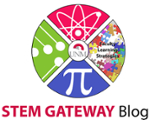 Our goal is to cover faculty members' perspectives and thoughts on what students need to be successful in college.
Our goal is to cover faculty members' perspectives and thoughts on what students need to be successful in college.
We are excited that the first Faculty Learning Strategies comes from UNM's very own 2015 Lecturer or Affiliated Teacher of the Year: Mark Morgan-Tracy (Deptment of Physics and Astronomy).

STEM Gateway would like to share the successes of faculty at UNM that are being recognized for their dedication to excellence in teaching and learning. These faculty continue to impress us with their continued commitment to improving teaching for learning. Furthermore, they want to share tips for succeeding in college with students. Learn more about the featured faculty and their tips for success by reading below.(Click HERE for more info on our re-occurring blog topics.)
Mark Morgan-Tracy, Senior Lecturer, in Physics and Astronomy, has been awarded the 2014-2015 Lecturer or Affiliated Teachers of the Year by the Center for Teaching Excellence. The award recognizes the contributions to UNM’s teaching mission by consistently employed, nontenure-track faculty. Mark served as a leader of the Physics 140/160 course redesign project in 2013-2014 and attended numerous teaching professional development workshops throughout the duration of the project. We commend Mark for being nominated by students and selected for his engaging teaching style.
Tips for students to succeed in Physics: Dr. Morgan-Tracy recommends that in order to excel in class “get help out of class”. Go to office hours, SI help sessions, or see a tutor at CAPS. Don’t wait until the middle of the semester or until it is too late. Go early and go often. Furthermore, be sure that you make the most out of the time you use in study sessions by asking directly for help on material isn’t clear. Knowing what you don’t know will lead to more productive study sessions.
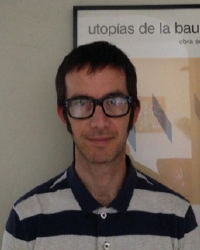
Derek Martinez, a Senior Lecturer, in the Department of Mathematics and Statistics has been accepted into the Teaching Fellows Program by the Center for Teaching Excellence in 2015. The Teaching Fellows Program provides opportunities to discuss teaching in an informed, supportive community, to examine the latest research on teaching and learning, and to conduct research on one’s own teaching.
Derek’s project will be looking at ways to help undergraduate math students develop metacognitive abilities that will help them in their study of Mathematics. Derek has led 2 course redesign projects with STEM Gateway, Math 121 and Math 116 (now Math 153). He credits STEM Gateway for introducing him to the metacognition concept and teaching him about it. We look forward to hearing what Derek learns and teaches others in his quest to improve the study of Mathematics by triggering students’ metacognition.
Tips for student success in Math:
Dr. Martinez advises students, “DO NOT be passive!!!!” Be assertive and ask questions during class and office hours. Be sure to constantly question yourself as well. "Do I know this? How can I prove it to myself that I know this? Where specifically am I having difficulty?" He provided the following guidance for students looking for tips to succeed in math.
Attend every class meeting. Learning information that you missed by not attending a class meeting can take twice or three times as much time as attending class. If you must miss a class, try to plan ahead and read the material in the book. Do the homework problems in advance, so you can ask questions of the instructor before you miss the class. If you have to miss a class for unexpected reasons, make every effort to stay current with the reading, notes and the assignments. In order to pass college algebra, it's critical that you not fall behind the rest of the class, because it can be very difficult to catch up, even if you haven't missed any actual assignments. If you miss class, also be sure to e-mail your instructor and let them know what is going on.
Read the book and try to work out some examples ahead of time. Many people are surprised by this tip, because, let's admit it: most people don't read math books. In fact, these days, many people don't read textbooks at all! But some math books are quite readable and can actually increase the likelihood that you'll pass college algebra. If you read the section of the book that will be covered in class before the class meets (even if you don't fully understand what you are reading), then you will be well primed for understanding what the instructor says, because it won't be new material to you. You don't have to spend hours reading it - just enough to get a feel for the material that will be covered in class. When you read the text, have a paper and pencil with you and try and work out the examples presented in the text.
Do your homework. The tests you'll take in the course will involve problems similar to the homework. In the absence of practice tests, the best practice for the tests will be the homework itself. Doing the homework will help you pass the tests, and passing the tests will help you pass college algebra. But there's an added benefit: doing homework problems will also prepare you for future concepts in the class. By completing all of the assignments in the first half of the semester, you'll have a solid foundation for the topics presented in the second half of the semester.
Ask questions in class. You or someone else paid for that class. Get your money's worth by interacting with the instructor. If you have a very large class, assert yourself anyway. This step is vital in order to pass college algebra. If you have a question, there are very likely at least five other students with the same question who are afraid to ask it.
Visit office hours. Your instructor will have at least three office hours a week. If you are having difficulty with any of the material do no wait until the last minute to get help. Spending 10 minutes in office hours getting a question answered can save you hours of struggling on your own!
Start a study group. Two heads really are better than one. If you can explain a concept to another student, you have learned it! This is one of the most powerful ways to help you pass college algebra. While the actual interaction with your group is sure to be beneficial, groups offer the added benefit of holding members accountable for showing up at a certain time and place, ready to do math. It's easier to keep your commitment to yourself to pass college algebra if you surround yourself with others with the same commitment. The best time to organize a study group is during the first or second class meeting. Pick three classmates, for a group-size of four.
Take advantage of extra help: In addition to your instructor's office hours, there is extra help available at:
- The Algebra Tutoring Table, staffed by algebra instructors 9 - 3 every day. It is located in front of the elevators on the second floor of DSH and behind room #224. The Calculus Tutoring Table is on the third floor right above the algebra table.
- CAPS: Center for Academic Program Support. Located on the 3rd floor of Zimmerman Library, 277-4560
- MEP Engineering Annex, room 210, or call the study group at 277-8795
- Paul’s Online Notes: http://tutorial.math.lamar.edu/Classes/Alg/Alg.aspx
- CATS: Counseling and Therapy Services, Student Health Center, 277-4537. (For test anxiety, etc.)
 Hua Guo, in the Department of Chemistry and Chemical Biology, has been promoted to Distinguished Professor, the highest faculty title at UNM. We would like to congratulate Dr. Guo in his accomplishment and commend his enthusiasm for teaching and research. Dr. Guo is the team leader for the STEM Gateway Course Redesign Project in Chemistry 131/132 Principles of Chemistry 2015-2016 and has shown deep passion for improving introductory Chemistry at UNM.
Hua Guo, in the Department of Chemistry and Chemical Biology, has been promoted to Distinguished Professor, the highest faculty title at UNM. We would like to congratulate Dr. Guo in his accomplishment and commend his enthusiasm for teaching and research. Dr. Guo is the team leader for the STEM Gateway Course Redesign Project in Chemistry 131/132 Principles of Chemistry 2015-2016 and has shown deep passion for improving introductory Chemistry at UNM.Tips for students to succeed in Chemistry-
Dr. Guo offers the following advice to students desiring to succeed in Chemistry:
Chemistry is hard, but not impossible. (Lucky, you are not studying the String Theory). Chemistry has its own rules, which sometimes do not make sense to a beginner. The key to make sense of things in chemistry is to spend time reading and doing homework. Practice makes perfect. This is true in many other disciplines, but particularly so in chemistry.
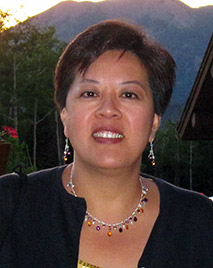 STEM Gateway would like to recognize Dr. Aurora Pun for her outstanding dedication to teaching and learning. Dr. Pun has been leading the effort to redesign the Environmental Science 102 Lab through the STEM Gateway Course Redesign Project from 2015-2016. Dr. Pun has been presented several awards for her dedication and distinction in teaching including:
STEM Gateway would like to recognize Dr. Aurora Pun for her outstanding dedication to teaching and learning. Dr. Pun has been leading the effort to redesign the Environmental Science 102 Lab through the STEM Gateway Course Redesign Project from 2015-2016. Dr. Pun has been presented several awards for her dedication and distinction in teaching including:College of Arts and Science Teaching Excellence Award in 2015- an award that honors a Lecturer who exemplifies excellence in teaching across the College.
William P. and Heather W. Weber Award for Teaching Excellence in Science in the College of Arts and Sciences in 2013- an award that honors Lecturers or Part Time Instructors who exemplify excellence in teaching of any science or math discipline within the College at the undergraduate level.
Outstanding Lecturer of the Year in 2010- an award that recognizes the contributions to UNM’s teaching mission by consistently employed, non-tenure-track faculty.
Tips to succeed in Earth and Planetary Science/ Environmental Science (EPS/ENVS)
Dr. Pun offers the following tips to students looking to excel in EPS/ENVS:
“Make friends among your cohort and spend time in the Earth & Planetary Sciences department. Feeling like a member of the EPS family is important for both support and success. You can join the Geology Club, participate in department activities, potentially get to know the faculty and start some potential undergraduate research in one of many labs. Studying in our building and interacting with fellow students and department members in the hallways provides opportunities to learn from each other, to learn about potential jobs, and to explore scholarships and research opportunities. The sense of belonging, the development of friendships, and support from our department will help foster motivation and success.”
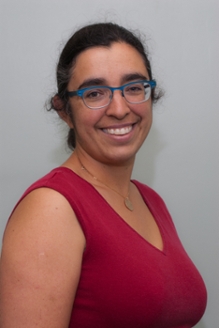 STEM Gateway is proud of Dr. Sushilla Knottenbelt for her dedication to student success in Chemistry that is demonstrated through her commitment to continually improving her teaching. Dr. Knottenbelt has been an active member in the STEM Course Redesign projects since 2012. She served on both the Chemistry 121 and Chemistry 122 Course Redesign Teams and has collected data that indicates that the changes she is making in her teaching are resulting in better student learning. You can check out her publications and presentations in the STEM Gateway Publication and Presentation page. Dr. Knottenbelt has been recognized at the local level as the 2012-2013 Outstanding Lecturer or Affiliate Faculty of the Year Award at UNM.
STEM Gateway is proud of Dr. Sushilla Knottenbelt for her dedication to student success in Chemistry that is demonstrated through her commitment to continually improving her teaching. Dr. Knottenbelt has been an active member in the STEM Course Redesign projects since 2012. She served on both the Chemistry 121 and Chemistry 122 Course Redesign Teams and has collected data that indicates that the changes she is making in her teaching are resulting in better student learning. You can check out her publications and presentations in the STEM Gateway Publication and Presentation page. Dr. Knottenbelt has been recognized at the local level as the 2012-2013 Outstanding Lecturer or Affiliate Faculty of the Year Award at UNM.
Dr. Knottenbelt has provided the following advice to students aiming to succeed in the classroom:
The most worthwhile things you learn take effort to learn them. Expect to have to work hard to understand the concepts – it won’t all come easily, but it will come. Many students feel discouraged when the going gets tough in chemistry, and feel like giving up. That’s a great time to get help. Your instructors, TAs and classmates are great resources to help you look at a problem in a different way. My most successful students in General Chemistry are very good at finding help – they are often in my office hours or email to ask me questions. Asking for help in this class is a strength, not a weakness. Another mistake many students make is to believe that once they understand a concept or a way to approach a problem, that is enough and that they will always be able to do that type of problem. At its most biological level, learning is simply making new neural connections in our brains. These pathways are reinforced by practice, and so the more problems you do after you understand how to do them, the stronger the pathway becomes and the less likely you are to forget it. It’s important to do this soon after you have learned it, before the pathway ‘becomes overgrown’ and you forget it.
Work for the long-term learning and not just the points. If you work for the points and the grade, you may get the points, but will miss out on the learning and forget easily. You’ll have to do the work again when you need the knowledge later. If you work for the learning – following up with your whys even if you got the answer correct – you will get the points and grade, and you will have a solid foundation of knowledge to carry on to the next unit or course.
Top tips
- Ask questions of yourself all the time: what are you supposed to know? How well do you know it? How can you tell how well you know it?
- Get help when you need it.
- Practice often and a lot. Several short sessions of study over a week work better for learning than one long cramming session. Treat exam preparation like training for a marathon – do some most days and make sure to rest well the night before.
- Take the opportunity to teach when you can. Explaining something to someone is a great way to determine how well you understand it.
- Don’t be discouraged if you don’t understand something – you will be able to understand it with the right kind of effort and help.
- Plan to ask for help – it can save you a lot of time. Your professor and TAs are there to help, and enjoy the opportunity to work with you one-on-one in office hours to help you learn.
- Don’t be discouraged if you don’t do as well as you hope on a test or quiz. There is no exam that measures your worth as a person or your potential as a learner. Take any failure or disappointment as an opportunity to rethink your study strategies and find some more effective techniques. This will help you not only in your current course, but will help you become a better learner for when you move on to more difficult courses. Don’t hesitate to approach your professor, a TA or a peer for advice on what to change. Then make the changes, commit to them, and see how they work on the next exam.
A mistake or misunderstanding is an opportunity for learning. Make sure you have a good reason for everything and then if incorrect, explain your reasoning to try to find out where you were off target.
Don’t give up! You can do it!
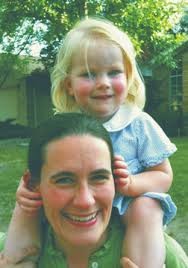 STEM Gateway would like to recognize Cara Lea Council-Garcia as this month’s Faculty Highlight. Mrs. Council-Garcia is responsible for designing and coordinating all of undergraduate biology major labs, and up until 3 years ago, the biology labs for health-related majors and biology labs for non-majors biology courses for 11 years. She works closely with the many Teaching Assistants and undergraduate students she advises. She has been an active member on two of the Biology Course Redesign Projects: BIO 202 Introductory Genetics and BIO 203 Ecology and Evolution Lab and Lecture. Cara Lea Council-Garcia has been a top attender of professional development programming aimed to improve instruction of STEM courses and is dedicated to designing and implementing curriculum that engages students in meaningful ways. Her love for teaching and commitment to student success makes her STEM Gateways’ May Faculty Highlight.
STEM Gateway would like to recognize Cara Lea Council-Garcia as this month’s Faculty Highlight. Mrs. Council-Garcia is responsible for designing and coordinating all of undergraduate biology major labs, and up until 3 years ago, the biology labs for health-related majors and biology labs for non-majors biology courses for 11 years. She works closely with the many Teaching Assistants and undergraduate students she advises. She has been an active member on two of the Biology Course Redesign Projects: BIO 202 Introductory Genetics and BIO 203 Ecology and Evolution Lab and Lecture. Cara Lea Council-Garcia has been a top attender of professional development programming aimed to improve instruction of STEM courses and is dedicated to designing and implementing curriculum that engages students in meaningful ways. Her love for teaching and commitment to student success makes her STEM Gateways’ May Faculty Highlight.- Confirm you are in the correct class - both with your major and with your semester schedule: It's easy to assume that when needing to take a class, you start with the first one in the catalog, but that's not always the right one for your major or your program. Make sure you are familiar with your degree/program/major requirements and the class descriptions to make the best choices for your schedule. Once you have your semester schedule, take some time before classes begin to locate your classes on campus. This will save you time (and headaches) that first week of school. Once you are in class, pay attention and ensure that you are in the class you expect to be in. Rooms are not always numbered consecutively and classes do get moved at the last minute.
- Attend lectures and take notes: Unlike secondary school, college is a privilege that costs money (it might not always be the student, but someone does pay). Honor that privilege by attending class and paying attention. Don’t fool yourself that you will be able to remember what was said in lecture. Take detailed notes that record as much of the material covered as possible. Don’t ask whether a particular topic will be on the exam. If it was discussed in lecture, it is important enough to appear on an exam and thus important enough to write in your notes.
- Regularly review and modify your notes: A college semester is very short. At UNM there are 16 weeks of classes and if you only meet 2 times a week, that's 32 class meetings maximum to share everything there is to know about one main topic. That means stuff doesn't get repeatedly reviewed in class - it's up to the student to go back, review information and make connections between lectures or lecture and lab.
- Ask questions!! If students don’t, instructors don't know what's being missed. There is no such thing as a stupid question….as long as it is asked. Science is all about questions, especially "Why." Most STEM instructors welcome inquisitiveness, especially if the student has already taken the initiative to try and discover the answers on their own.
- Study actively and change up your study techniques: It has been shown that just looking over notes is ineffective. Following the same study routine also decreases study effectiveness. Try to incorporate different study techniques to keep your brain constantly challenged. Think of studying like a gym workout plan - the best, most effective plans regularly change up the routine so that your body doesn't get stuck in a rut. Same with studying - following the same pattern, lulls your brain into a sense of comfort and security while not allowing your brain to be challenged and remain sharp. For example, find a classmate to quiz the material with; teach other people (family members, friends, your cat, etc.) what you are learning in class; come up with funny ways to remember difficult processes; find a new location to study in.
- Get involved - Biology program or club, research lab, tutoring, science library, etc.: It's important to build connections and resources while in college. Not only with this help you with your classes, but with any future plans you might have. Joining a Biology club or program creates associations with peers who will be taking or have taken the same classes you are. Getting involved in research opens doors for future career paths and recommendations. Working with other departments on campus can open doors to possibilities that you might not even know existed when you first decided to study Biology.
